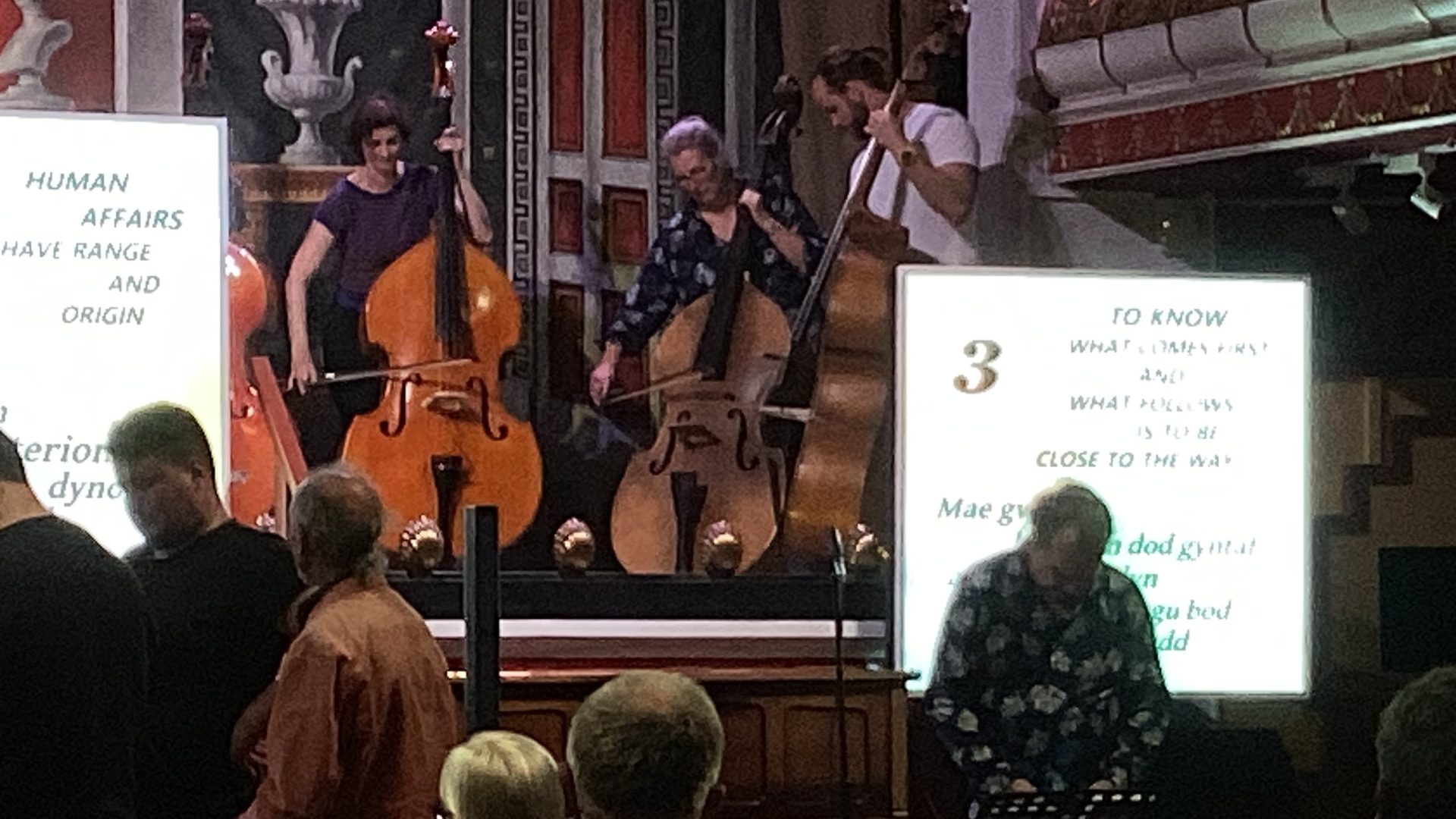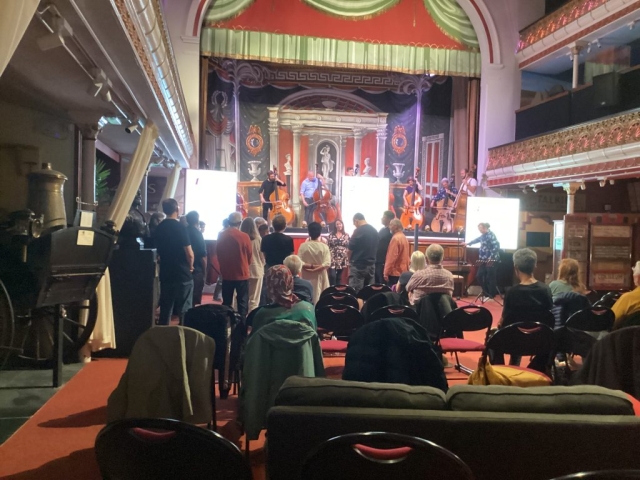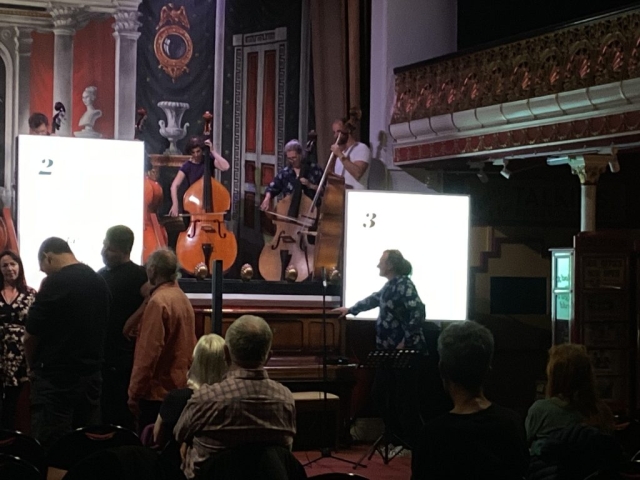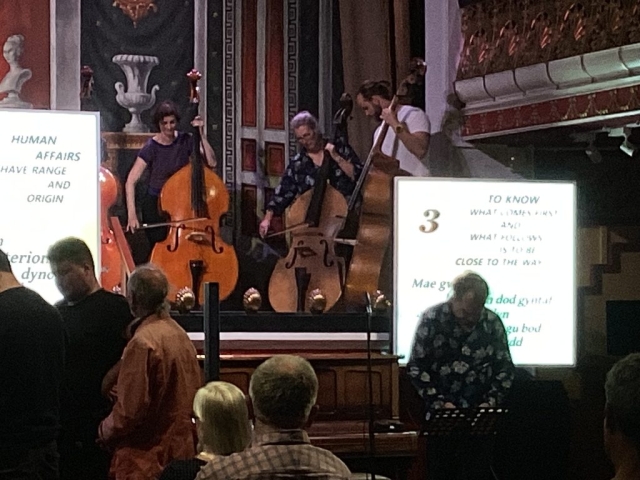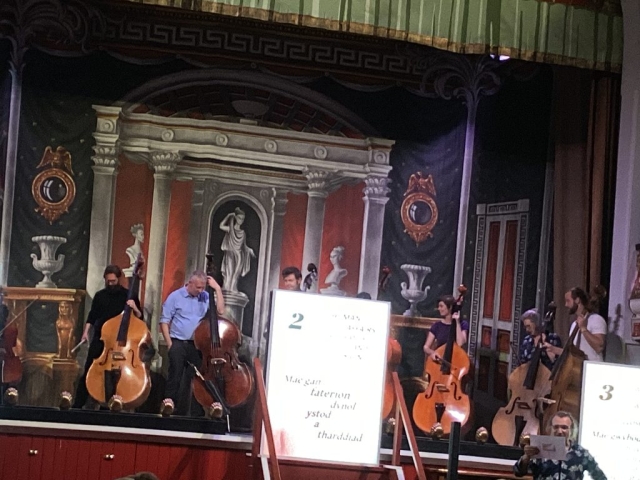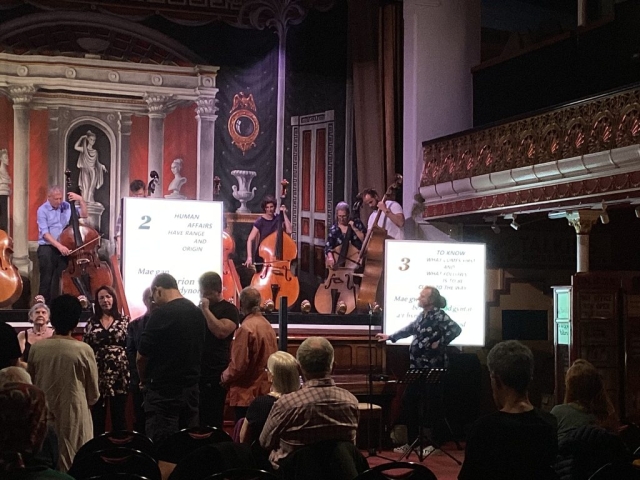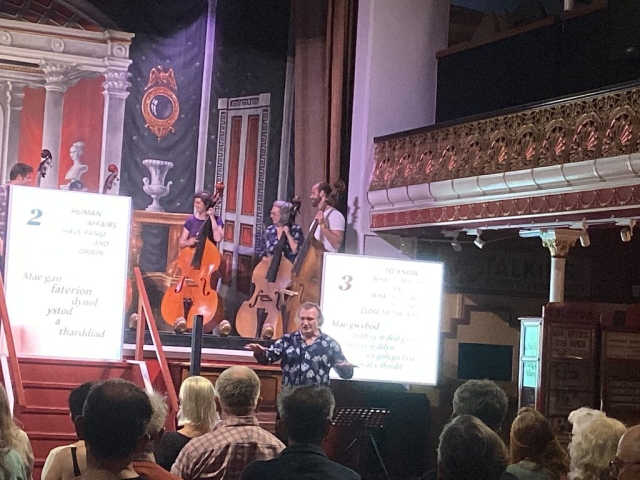A evening of collective music held at Amgueddfa Ceredigion Museum, Aberwystwyth
Friday 30th June 7.30pm/Dydd Gwener, 30ain Mehefin 7.30yh 2023
The first event organised by Gwrandewch, a not-for-profit arts group, was held at the delightful and atmospheric Amgueddfa Ceredigion Museum in Aberystwyth. It was billed as part of Musicfest Aberystwyth and also supported by WOW film festival (One World Wales).

One of the main themes was to make music less elitist and thereby more inclusive: something that resonates with the uniqueness of music as a human activity – animals may have “calls” but they can’t hold a rhythm or sing collectively, responding to one another during the process. Several references were made to tribal attitudes to the universal taking part in music, and also the evolution of music prior to formalised language.
The evening consisted of three sections:
“FFLAM” – a solo double bass recital by Ashley John Long
“OPUS 133” – a film by Clive Myer & music by Lyndon Owen
“The Great Learning:Paragraph 3” – a collective music piece for singers and double basses by Cornelius Cardew
The full programme and poster for the evening can be downloaded here:
FFLAM
The first piece, “Fflam” is a work written and played by Ashley John Long, a virtuosic double bassist and composer active in a diverse range of musical idioms including jazz, improvisation, early and contemporary chamber music. As a soloist he has developed a unique approach to the instrument, creating innovative performance techniques which this piece amply demonstrates. For most of the audience this was the first time they would have experienced such a contemporary piece and such an unusual solo instrument. The extension of technique and resulting musicality was astounding.
OPUS 133
A structuralist film from 1972 by Clive Myer who had been participating in the Scratch Orchestra, and Cardew came to see a private showing at the RCA. It is shot at 2 frames a second and is an improvised dance by Lynn Seymour, Principle Ballerina from the Royal Ballet based on a script drawn from Cardew’s “Treatise” – a graphical score. Music is “Elizabet Sagen” by Lyndon Owen, played by the “Big Clutch”
The Great Learning : Paragraph 3
The “main event” was a performance of Paragraph 3 which involved any of the audience and 9 double bass players. Cornelius Cardew (1936 – 1981), a radical composer and fellow of the Royal Academy of Music. He worked with Stockhausen and various experimental musical forms. He began teaching creative music at Morley College and formed the Scratch Orchestra in 1969 to explore “The Great Learning”.
His aim was to develop music which was anti-elitist and non-commercialist and became an ardent anti-fascist activist, embracing human equality in his radical politics. The piece is particularly suited to this ideal because:
- It is extremely simple to sing or play, and is accessible to everyone
- There is no need to be able to read music
- Rehearsals are not be required so time commitment is minimal
- Preparation amounts to a talk through of the instructions during the performance
- Anyone can be part of the performance if they wish
- There are only three lines of lyrics but you can choose what tempo and words to sing to discover your own singing self and how you interact with others.
- Cardew instructs the singer to use their natural, comfortable voice
- Lyrics are be bilingual as the form lends itself to multiple languages being used
- Performance will be ‘in the round’ but the audience will be surrounded by the players and singers
The piece was a resounding success. We had about 35 audience/singers taking part and 9 double basses (well 8 and a detuned cello). The feedback was amazing: everyone felt a sense of empowerment and achievement by doing something collective. The bass players ranged from high end professional players to people who had bowed a bass for the first time in their lives. Singers, or rather people who sang, were given a platform to explore their own voice collectively alongside others doing the same thing. The process gave a security which engendered a personal space to freedom.
A huge thanks/diolch yn fawr to all that took part. Particular thanks to Joan Rowlands of Musicfest Aberystwyth, Sarah Morton of Amgueddfa Ceredigion, Phil Budd for conducting the singing, and Clive Myer for the film.
I’d be really pleased for any comments you may have at the bottom of this page.
